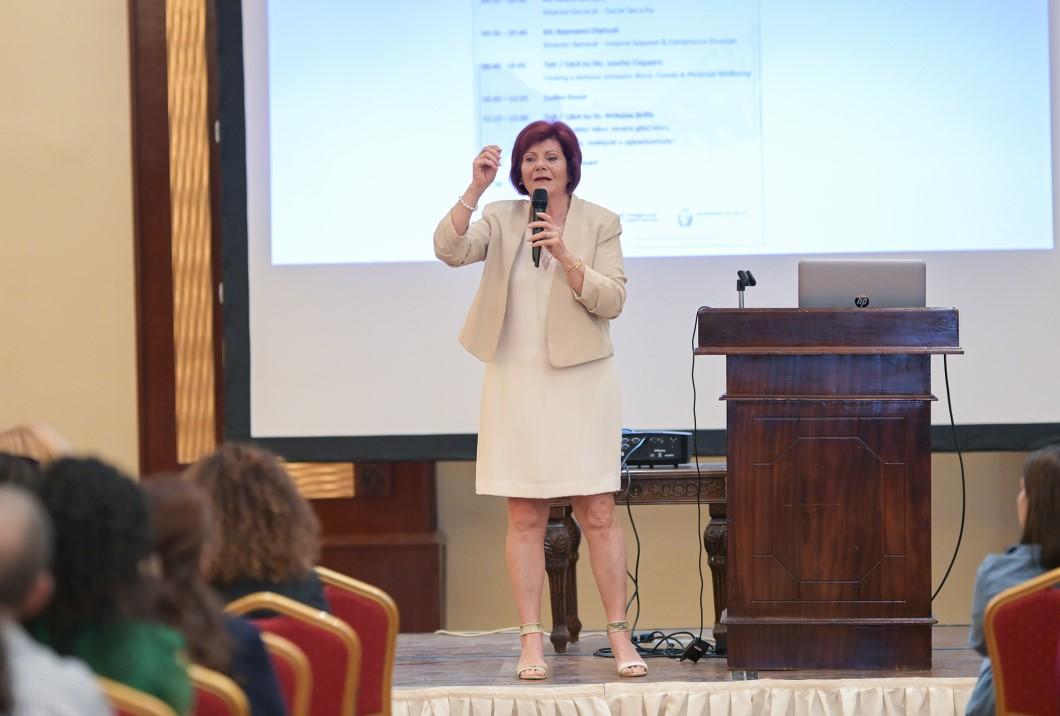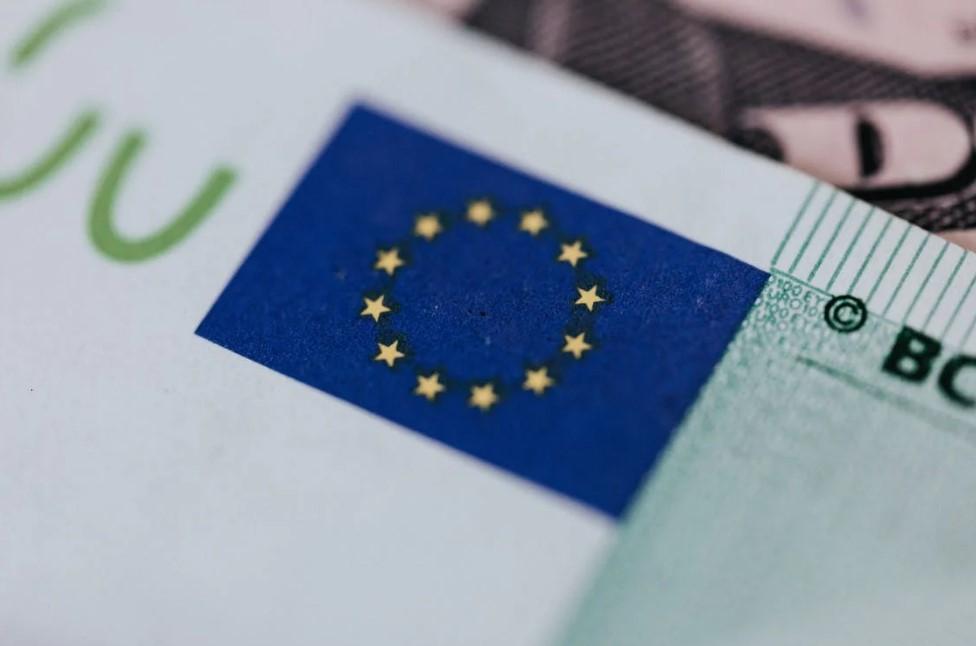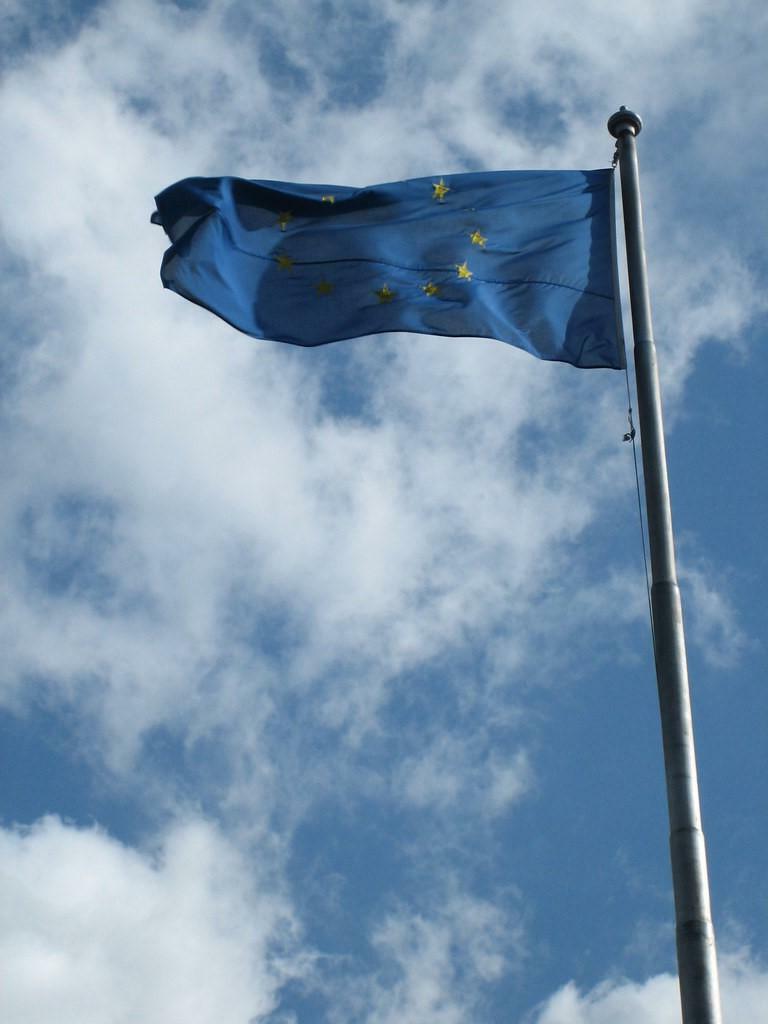
8 minute read
10 Imfakkar Jum id-Dipartiment tas-Sigurtà Soċjali
DSS + ISCD Imfakkar Jum id-Dipartiment tas-Sigurtà Soċjali
T o n i o B o n e l l o
Ta’ kull sena l-impjegati fi ħdan il-Ministeru għall-Politika Soċjali u d-Drittijiet tat-Tfal ikollhom jum dedikat għalihom f’dik li tissejjaħ DSS Day. Dan hu l-jum li fih ikun iċċelebrat Jum id-Dipartiment tas-Sigurtà Soċjali. Dawn l-aħħar sentejn kienu eċċezzjoni u dan l-appuntament annwali ma kienx qed isir minħabba fil-miżuri li kienu fis-seħħ kawża tal-Covid-19.
Din is-sena għalhekk dan kien avveniment mistenni ħafna u l-25 ta’ Mejju ta’ din is-sena reġa’ fetaħ il-bibien beraħ biex attivitajiet tal-massa fuq ġewwa setgħu jerġgħu jibdew ikunu organizzati.
L-avveniment li sar f’lukanda ewlenija fetaħ b’indirizz mill-Onorevoli Michael Falzon, Ministru għall-Politika Soċjali u d-Drittijiet tat-Tfal. Warajh segwa diskors mis-Sur Mark Musù, Segretarju Permanenti, kif l-istess għamlu d-Diretturi Ġenerali Grazio Barbara responsabbli mis-Sigurtà Soċjali u Raymond Chetcuti, responsabbli mill-Income Support & Compliance Division rispettivament.









Kelliema oħra kienu s-Sinjura Josette Ciappara li tkellmet dwar kif għandu jinstab bilanċ bejn il-ħajja tax-xogħol, il-familja u l-kura tal-persuna nfisha, kif ukoll minn Dr Nicholas Briffa li t-tema li qasam mal-udjenza quddiemu trattat is-sesswalità! Minn Venere għal Mars – Definizzjoni, realtajiet u opportunitajiet. Fi tmiem l-attività dawk preżenti kienu mistiedna għal ikla fl-istess stabbiliment fejn kienu akkumpanjati minn grupp mużikali li ħoloq atmosfera tant sabiħa.
Ta’ min jgħid li din kienet attività waħda fost oħrajn li l-Ministeru għall-Politika Soċjali u d-Drittijiet tat-Tfal organizza matul ix-xahar ta’ Mejju.
Nhar il-5 ta’ Mejju kienet organizzata Themed Dress Day b’risq l-ALS waqt li fil-11 ta’ Mejju saret Blood Drive bil-kollaborazzjoni tal-Kamra tar-Rappreżentanti fejn dakinhar il-Blood Donation Mobile Unit kienet disponibbli proprju quddiem il-bini tal-Parlament fil-Belt. Konferenza dwar Kitba Ċara organizzata mill-RPOD kienet organizzata disat ijiem wara, jiġifieri fl-20 ta’ Mejju waqt li fil-lukanda Excelsior, kif spjegat aktar ’il fuq saret id-DSS & ISCD Day. L-attivitajiet ġew fi tmiem permezz ta’ Webinar imtella’ mill-Kampanja Nazzjonali ĠEMMA.

P h o t o : K a r o l i n a G r a b o w s k a
What are the EU Social Security Coordination rules and how do these apply to me?
K a r e n F a r r u g i a M a n a g e r I I ( R e s e a r c h ) I n t e r n a t i o n a l A f f a i r s
In the previous articles, we focused on the practical implementation of the EU Social Security coordination rules. In this Article we will provide you with more information about the main actors involved in the coordination rules at a European level. The European Labour Authority (ELA) has been created to help Member States and the European Commission to ensure that EU rules on labour mobility and social security coordination are enforced in a fair, simple and effective way. ELA also has an important role to play in facilitating and ensuring effective labour mobility in Europe, in particular by activities of European Employment Services (EURES). To date, about 13.5 million EU citizens live or work in another Member State and mobility within the EU continues to grow. The free movement of workers and services is a pillar of the European Union and seen as one of the main achievements of EU integration. It provides workers and companies with the opportunity to seek work and provide services across the EU. To ensure that the fundamental freedom of free movement works in practice and brings a fair mobility to individuals and companies, there is a set of legislations on EU labour mobility and it is necessary that the agreed rules are properly enforced. Their effective enforcement in the Member States requires structured cooperation and exchange of information between competent national authorities and executing common activities

such as joint labour inspections or the training of national staff on cross-border mobility rules. To tackle these issues, former European Commission President Jean-Claude Juncker announced the creation of a European Labour Authority in September 2017, in his State of the European Union address: “In a Union of equals, there can be no second-class workers. Workers should earn the same pay for the same work in the same place. This is why the Commission proposed new rules on posting of workers. We should make sure that all EU rules on labour mobility are enforced in a fair, simple and effective way by a new European inspection and enforcement body.” ELA was established on 31 July 2019 and since September 2021 has its permanent seat in Bratislava, Slovakia. ELA is established to help strengthen fairness and trust in the internal market by assisting Member States and the European Commission to ensure that EU rules on labour mobility and social security coordination are fairly and effectively enforced and by making it easier for citizens and businesses to obtain the benefits of the internal market. ELA does this by performing the following tasks: Facilitating access to information for individuals and employers on labour mobility Supporting Member States in promoting cross-border job matching and coordination of EURES; Facilitating cooperation and the exchange of information between Member States; Coordinating and supporting concerted and joint inspections; Carrying out analyses and risk assessment on issues related to cross-border labour mobility; Supporting Member States with capacity building in the field of labour mobility; Supporting Member States in tackling undeclared work; Mediate disputes between Member States on the application of relevant Union law.


T e a m Ġ E M M A
Inflation is a recent buzzword used by many people who may not necessarily know what it means to show how smart they are. You become wiser by not only knowing what it is but how it affects you in your daily life and how to make the right choices.
What is inflation? Inflation is the general increase in the prices of goods or services. For example, one day, you go to a supermarket and buy the same goods as the last time you went, but the total on the bill would be higher. Your first instinct would be to check whether there’s a product that you may have bought by mistake. However, you realize that you didn’t buy anything besides your usual shopping list. Upon closer inspection, you discover that the goods you usually buy have increased their price. You’ll notice the increase in price not just for one item but all items in general. That’s inflation. Inflation means that you need more money to buy the same goods. If you’re on a tight budget, you can buy fewer goods with the same amount of money, as they’re unaffordable.
In simple terms, your money would have lost its purchasing power. The European Central Bank targets around 2% inflation per year to maintain economic stability. For example, if you spent Euro 100 last year, you’ll need Euro 102 to be able to purchase the same goods.
Governments try to compensate for these increases through instruments such as cost of

P h o t o : P a v e l D a n i l y u k


living adjustments as announced in budget speeches. The private sector bears all the cost of the increases for its employees. While 2% can be considered normal, lately, the inflation around the European Union was high as 8%. For example, you’ll need Euro 108 instead of Euro 100 or Euro 8 more to buy the same goods as one year ago. Surviving inflation The average consumer can’t control inflation as geopolitics is a complex subject that only superpower countries can attempt to influence. Nonetheless, you can at least try to reduce or limit the impacts of inflation on your hard-earned money. Like anything in life, good and bad times pass. We don’t want good times to pass, yet no one knows how long bad times last. Ideally, you’ll be well prepared to pass through unfavourable situations like inflation with minimal impact. As a consumer, your goal should be to preserve your money. The less you spend, the better. However, bills need to get paid, and food needs to get on the table. The trick is to be frugal or economical. To be economical means to be moderate in your spending. Do you need to splash money out on designer clothes, or will beautiful unbranded clothes serve the same need? Do you need to buy the last smartphone that came out last month, or will it cost more than your average salary? You have to distinguish between a need and a want. Needs are essential items, so you’ll still need to buy them regardless of your financial state. These include consumer essentials like food, healthcare and utilities. On the other hand, wants are non-essential items or things that you can survive without them. Wants are consumer discretionary as buying a car, appliances, entertainment and investing. Article reposted with permission from https:// zero.com.mt/ By Andy For more information visit gemma.gov.mt











